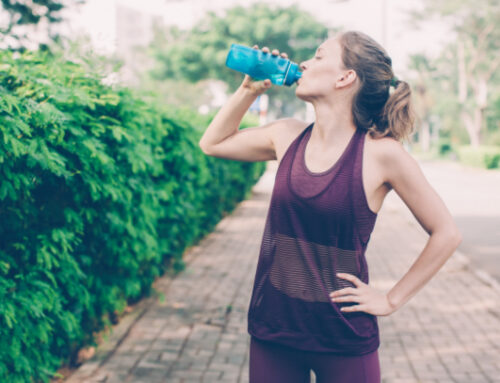Have you chosen to take the valuable self-improvement to avoid swelling after rhinoplasty? You have reason to be proud. While others only talk, you’ve taken action.
Despite thorough preparation, however, patients can be surprised by swelling. Depending on the extent of your procedure, the worst of it usually lasts only a few days. Still, rhinoplasty’s full healing process can take several months, and during this time, swelling can return.
Relax; swelling is a healthy sign your body is trying to heal itself. The challenge is, while we want to heal, we don’t necessarily want to see effects on our faces. Your best option is to do everything to support healing and act to minimize the appearance of swelling as it occurs.
Why Do You Have Swelling After Rhinoplasty?
Before we get into specific tips to reduce rhinoplasty swelling, it may be helpful to understand exactly why rhinoplasty swelling happens.
There are basically two forms of swelling after rhinoplasty. First, there is swelling caused by the trauma of the surgical experience; this swelling will be fairly immediate, and simply shows the inflammation caused by the surgical procedure. This type of swelling is typically accompanied by some mild bruising.
There is also swelling that occurs due to fluid retention under the skin of the nose. This type of swelling may take a few months to completely resolve, though the extremity of the swelling will gradually taper off.
How to Reduce Swelling After Rhinoplasty
The following tips to reduce swelling after rhinoplasty will help you accomplish both goals.
Follow All Post-Surgical Instructions
Patients often leave their rhinoplasty procedure with packing or splint devices in their nose to prevent blood loss and support initial recovery. Usually, within a few days, you’ll return to have them removed, along with any stitches. You’ll receive a set of detailed instructions on medications and the care and cleaning of the surgical site.
Be sure to follow all of them, and don’t hesitate to contact HKB if you have any questions.
Avoid Specific Medications and Supplements
As you may know, our bodies naturally send blood to wherever healing needs to take place. Aspirin, ibuprofen, and some nutritional supplements thin the blood and inhibit its ability to clot and stop any bleeding. And, in the first week after surgery, stopping any initial bleeding is a priority.
Otherwise, an open incision may cause your body to send more blood to your nose, which increases swelling. To manage pain, your doctor may suggest you temporarily use Tylenol or other non-blood-thinning medicines.
Stop Smoking
Your doctor will require you to quit smoking for a period before AND after rhinoplasty. There are a couple of reasons for this.
First, smoking delays your body’s healing process by introducing a variety of toxins into your system. Second, nicotine constricts the blood vessels, which prevents them from doing the job of healing your nose.
Use Ice
There’s nothing wrong with relying on an old-fashioned remedy if it works. Ice has the natural ability to decrease swelling. That’s because your body’s reaction to cold is to drain excess blood from the exposed area.
Especially in the days immediately following rhinoplasty, ice is an effective way to decrease excess swelling. You can use ice packs on your cheeks multiple times a day during this period. To prevent frostbite, be sure to wrap the ice packs in a clean cloth before applying to your skin, and never leave them on for longer than 20 minutes at a time.
Elevate
Gravity has a significant impact on our blood flow. After your rhinoplasty procedure, your doctor will suggest you sleep in a recliner or with your head elevated by pillows for a few days.
Doing so will prevent you from rolling over onto your nose and will minimize swelling. Don’t worry. Your body will still send enough blood to your nose to do the work of healing. If swelling returns over the next few months, repeat this technique.
Hydrate
Another important step in minimizing rhinoplasty swelling is drinking plenty of water. By staying hydrated, you can flush toxins out of your body, helping the swelling to dissipate more quickly.
Along the same lines, be sure to regulate your intake of sodium. A high-sodium diet can lead to fluid retention. This does not mean you have to eliminate sodium completely, but try to go easy on the salty snacks, and avoid adding any extra salt to your food.
One more note about hydration: Keep in mind that alcohol is a diuretic, and can cause you to dehydrate pretty quickly. During your rhinoplasty recovery, you’ll probably want to abstain from drinking, or at least go very easy on your alcohol intake.
Keep a Positive Attitude
Always remember, recovery from rhinoplasty is a process, not an event. Your best weapon against swelling is your ability to put it in perspective. No two patients recover the same. You may have good days when you have no swelling, and you think you have finished healing, and not-so-good days when it returns.
Again, this is normal. Rhinoplasty is one of the most common procedures plastic surgeons perform. The physicians at HKB know how essential your recovery is and how to see it through. And, whatever supports your recovery is likely to reduce swelling as well. Most patients concerned about setbacks find themselves ecstatic with their results within a few weeks or months.
Learn More About How to Reduce Swelling After Rhinoplasty
The rhinoplasty process can be a major first step toward a more harmonious facial appearance, and toward an increase of your self-confidence. Just keep in mind that there will be some side effects, including swelling, that you’ll need to deal with on a temporary basis. Hang in there and trust the process! And, if you have any specific questions about rhinoplasty swelling, make sure you reach out to your surgeon.
The Charlotte plastic surgeons and staff at HKB stand ready to support you in your recovery. If you have any additional questions about rhinoplasty Charlotte, NC, don’t hesitate to contact us directly.



